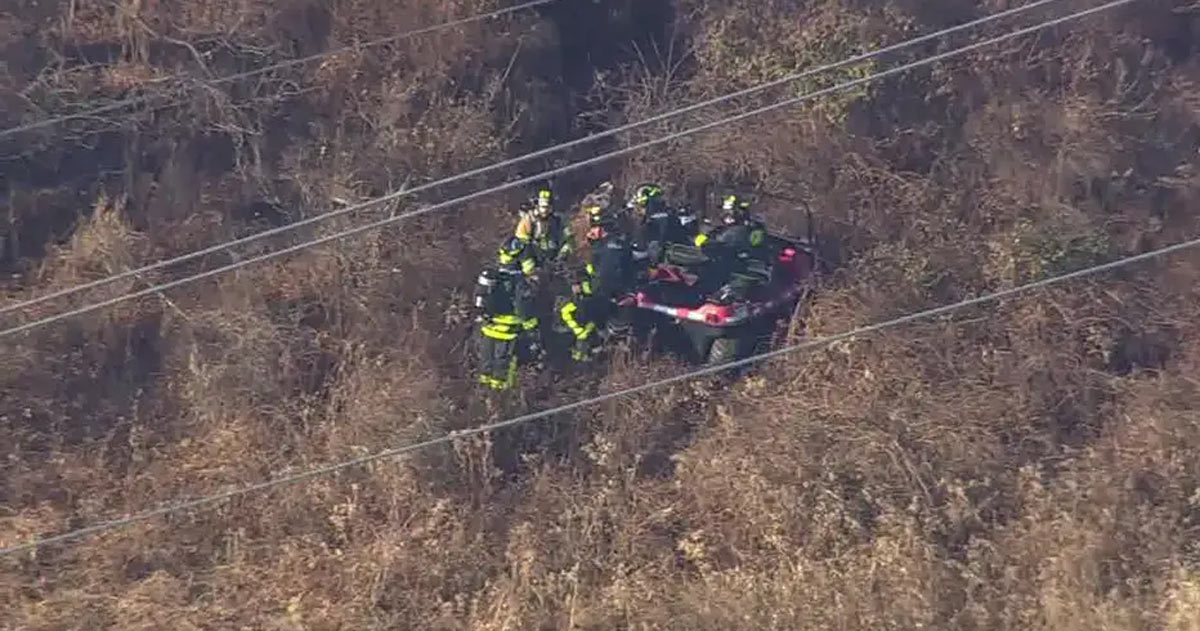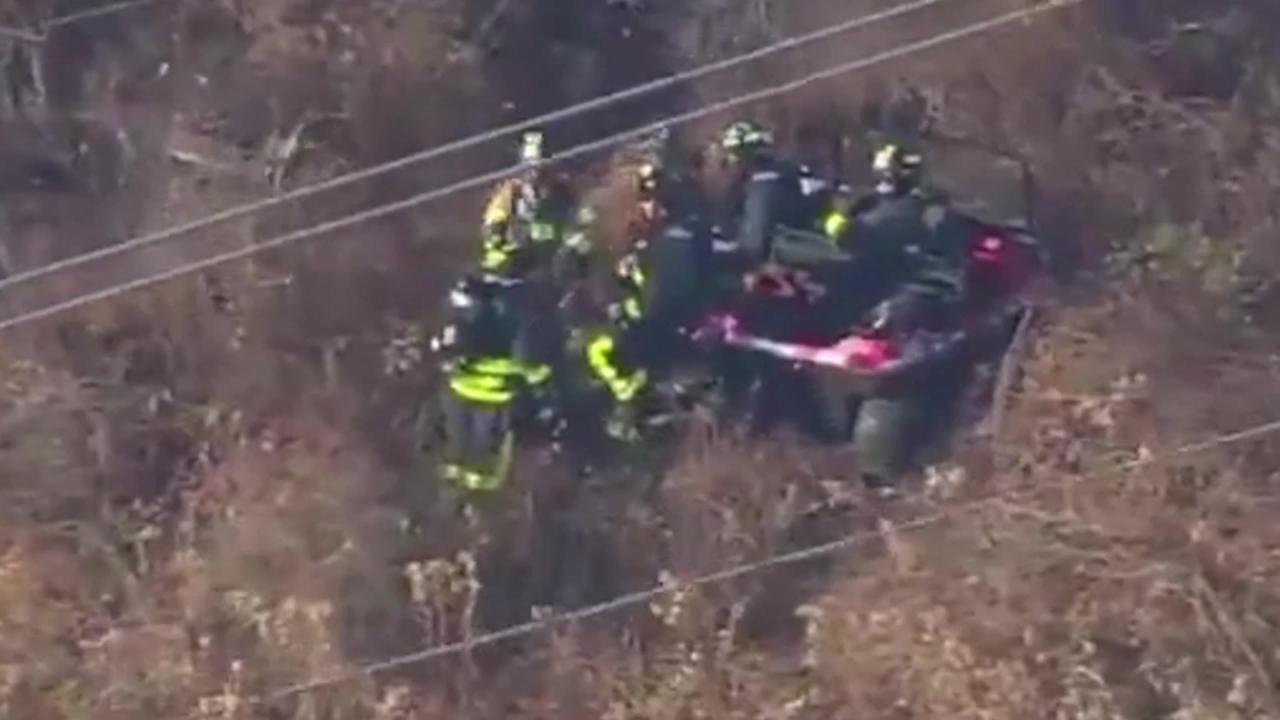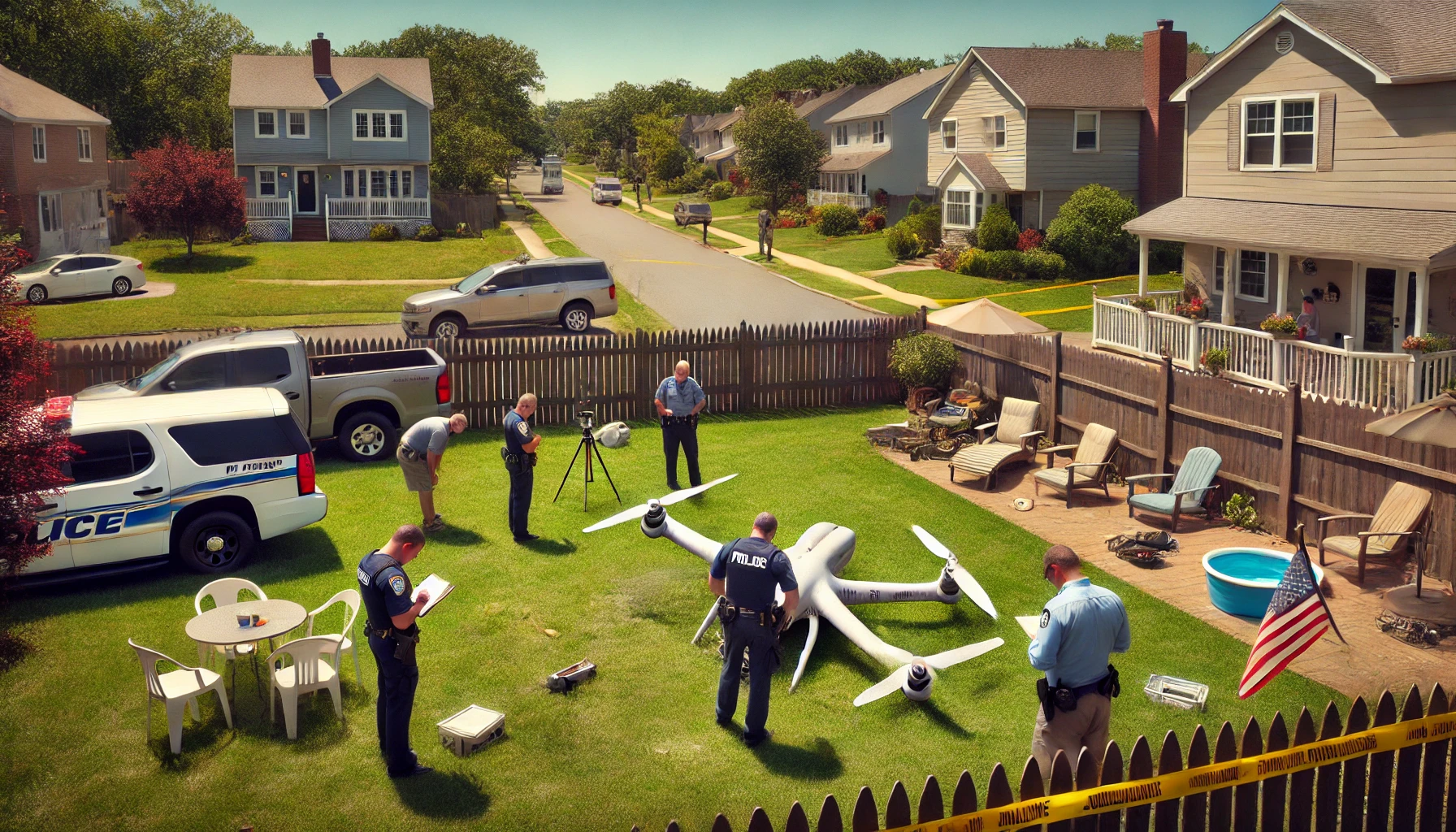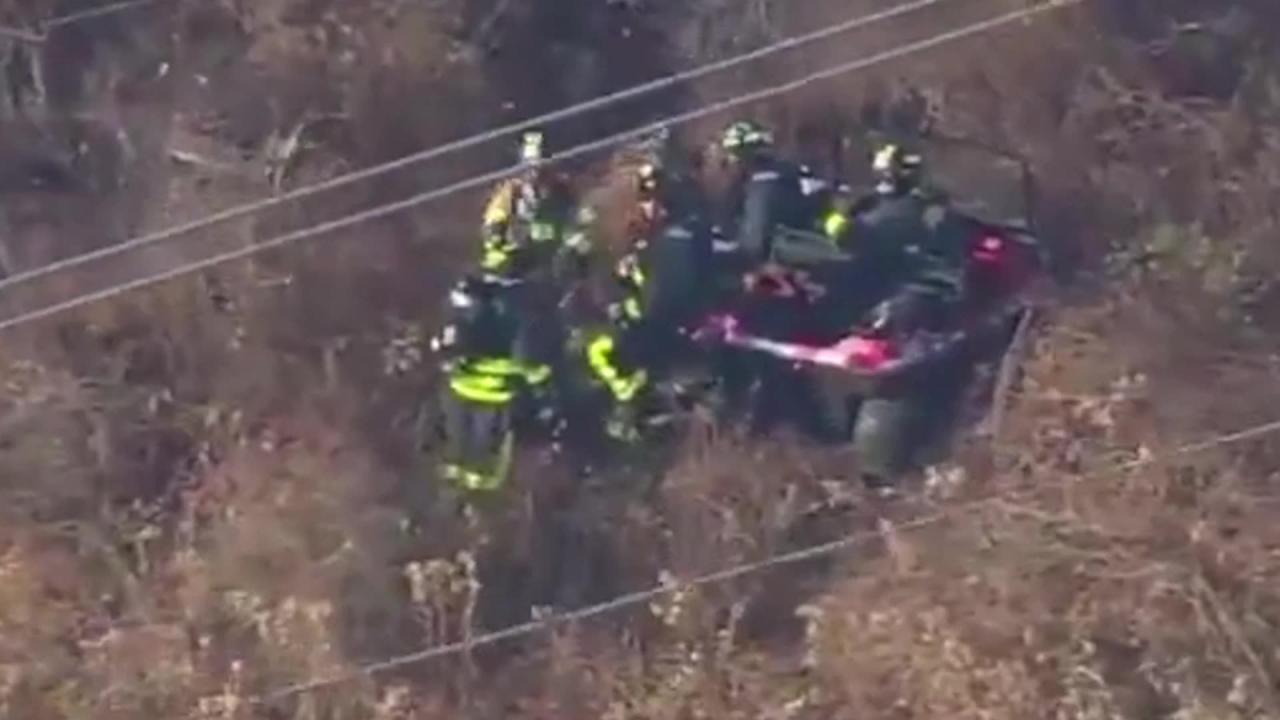Drone crashes in New Jersey represent a growing concern, demanding a comprehensive understanding of their causes, consequences, and preventative measures. This examination delves into recent incidents, analyzing contributing factors and exploring the evolving landscape of drone safety regulations and technological advancements in the state.
The increasing popularity of drones for both recreational and commercial purposes has unfortunately led to a rise in accidents. This analysis will explore the data surrounding these incidents, highlighting the types of drones involved, the locations of crashes, and the resulting impacts. We will also examine the role of safety regulations, technological innovations, and public awareness in mitigating future risks.
Recent Drone Crash Incidents in New Jersey
The increasing popularity of drones in New Jersey has unfortunately been accompanied by a rise in reported accidents. This section details recent drone crash incidents, analyzing the types of drones involved and the locations of these occurrences. Accurate data on drone crashes is often limited due to underreporting, but based on available information from news reports and FAA databases (where accessible), we can present a general overview.
Reported Drone Crash Data
The following table summarizes reported drone crashes in New Jersey within the last year. Note that this data may not be exhaustive due to reporting limitations. The table is designed to be responsive, adapting to different screen sizes.
| Date | Location | Type of Drone | Brief Description of Incident |
|---|---|---|---|
| October 26, 2023 | Trenton, NJ | Consumer Drone (DJI Mavic 3) | Lost control due to strong winds; crashed into a tree. No injuries reported. |
| November 15, 2023 | Atlantic City, NJ | Commercial Drone (Autel EVO II) | Malfunction of GPS system; crashed into the ocean. Drone recovered, minor damage. |
| December 5, 2023 | Newark, NJ | Consumer Drone (Syma X8HG) | Pilot error; crashed into a building. Minor property damage. |
Types of Drones Involved
The incidents reported above involve a mix of consumer and commercial drones. Consumer drones, often smaller and less expensive, are frequently used for recreational purposes, photography, and videography. Commercial drones, typically larger and more sophisticated, are employed for various professional applications, such as aerial photography for real estate, inspections, and surveying. While military drones are less likely to be involved in publicly reported crashes within a state context, their potential involvement in training exercises or other operations cannot be entirely excluded.
Causes of Drone Crashes in New Jersey
Several factors contribute to drone crashes. Analyzing these causes allows for the development of preventative measures and improved safety regulations. While specific data for New Jersey may be limited, we can extrapolate from national trends and reported incidents to highlight common causes.
Common Causes and National Trends

Pilot error is a leading cause of drone accidents nationwide, including in New Jersey. This includes issues like loss of situational awareness, improper pre-flight checks, and inadequate understanding of weather conditions. Mechanical malfunctions, such as battery failure or GPS glitches, also contribute significantly. Environmental factors, such as strong winds and inclement weather, play a role, particularly for smaller, less robust drones.
Finally, collisions with obstacles, including buildings, trees, and power lines, are frequent causes of crashes.
Examples of Specific Incidents
The incident in Trenton (see table above) exemplifies the impact of strong winds on drone control. The Atlantic City incident highlights the risk of GPS system malfunctions, while the Newark incident underscores the importance of proper pilot training and awareness. These examples demonstrate the diverse range of factors that can lead to drone crashes.
Impact of Drone Crashes

The consequences of drone crashes can be significant, ranging from minor property damage to serious injuries and environmental harm. Understanding these potential impacts is crucial for implementing effective safety measures.
Potential Consequences

Drone crashes can result in property damage, such as damage to buildings, vehicles, or other structures. Depending on the size and weight of the drone, and the circumstances of the crash, injuries to people or animals can occur. In addition, the drone itself, or its battery, could cause a fire or other environmental damage. The consequences can extend beyond the immediate impact.
Economic and Social Effects
- Increased insurance costs for drone operators.
- Loss of productivity due to damage or disruption.
- Negative publicity and damage to reputation for businesses using drones.
- Public fear and distrust of drone technology.
- Increased regulatory scrutiny and stricter safety standards.
Safety Regulations and Procedures
New Jersey, like other states, has regulations governing drone operation. These regulations aim to minimize the risk of accidents and ensure responsible drone use. Compliance with these rules is essential for safe and legal drone operation.
New Jersey Drone Regulations
Operators must register their drones with the FAA if they weigh over 0.55 pounds. Flying within visual line of sight (VLOS) is generally required. Flying near airports or other sensitive areas is often restricted. Operators must also adhere to airspace restrictions and be aware of potential hazards, such as power lines and other obstacles. Specific regulations are subject to change, so consulting the FAA and New Jersey state aviation authorities for the most up-to-date information is essential.
Obtaining a Drone Operating Permit (Illustrative Flowchart)
While a general permit isn’t always required for recreational drone use, certain commercial operations might necessitate specific permits or licenses. The following flowchart illustrates a simplified process for obtaining a hypothetical permit (the actual process may vary).
(Note: A visual flowchart would be included here in a true HTML document. The text below describes the steps that would be shown in the flowchart.)
- Apply online through the New Jersey State Aviation Authority website.
- Provide necessary documentation (identification, drone registration, proof of insurance, flight plan).
- Undergo a background check.
- Pass a safety and regulations test.
- Receive permit approval or denial.
Technological Advancements and Safety Features
Technological advancements play a crucial role in enhancing drone safety. Features designed to prevent crashes are constantly evolving.
Obstacle Avoidance and GPS Systems
Modern drones often incorporate advanced obstacle avoidance systems using sensors like lidar and cameras. These systems allow drones to detect and avoid obstacles autonomously, significantly reducing the risk of collisions. Precise GPS systems improve navigation accuracy, helping to prevent drones from drifting off course or entering restricted airspace. These features, while not foolproof, considerably enhance safety.
Hypothetical New Safety Feature
A hypothetical new safety feature could be an integrated “geofencing” system with real-time airspace updates. This system would not only restrict the drone’s flight path to pre-defined boundaries but also dynamically adjust these boundaries based on real-time updates of temporary flight restrictions (TFRs), such as those issued for emergency situations or special events. This would prevent accidental incursions into restricted airspace, a major cause of drone accidents.
Public Awareness and Education: Drone Crashes In New Jersey
Promoting public awareness and education is critical for ensuring safe drone operation. Well-designed public service announcements and educational programs can significantly reduce the number of accidents.
Public Service Announcement (PSA) Example
Scene: A drone operator is about to launch their drone near an airport.
Narrator: “Before you take flight, remember: Drone safety is everyone’s responsibility. Check airspace restrictions, maintain visual line of sight, and never fly near airports or other sensitive areas. Safe drone operation protects you and others. Learn more at [website address].”
Educational Program Suggestions
- Workshops and seminars on safe drone operation.
- Online courses and tutorials covering drone regulations and best practices.
- Community outreach programs to educate the public about drone safety.
- Collaboration with schools and universities to integrate drone safety into relevant curricula.
Future Trends and Predictions
The future of drone technology in New Jersey, and across the nation, involves continued advancements in safety features and increased integration into various sectors. These trends will likely influence the frequency and nature of drone crashes.
Future Trends and Their Impact, Drone crashes in new jersey
We can anticipate the widespread adoption of autonomous drone delivery systems, leading to increased drone traffic and the need for sophisticated air traffic management systems. The development of more robust and resilient drone designs will likely reduce mechanical malfunctions. However, the increasing complexity of drone operations could also introduce new challenges and potential risks. The rise of drone swarms for various applications presents unique safety concerns that will require innovative solutions.
Recent drone crashes in New Jersey have raised concerns about safety and regulations. Understanding the causes behind these incidents is crucial, and thankfully, some progress has been made in addressing broader drone-related issues. For instance, you might find solutions explored in this insightful article on drones over new jersey solved , which could offer valuable context. Ultimately, reducing drone crashes in New Jersey requires a multifaceted approach, incorporating lessons learned from past incidents.
Hypothetical Future Scenario
In 2035, New Jersey’s airspace is seamlessly managed by an advanced AI-powered system. Autonomous drones deliver packages across the state, navigating complex urban environments with ease thanks to advanced sensor technology and real-time obstacle avoidance. Drone-related accidents are significantly reduced due to proactive safety measures and robust regulatory frameworks, paving the way for a future where drones are seamlessly integrated into daily life.
Ultimately, addressing the issue of drone crashes in New Jersey requires a multi-faceted approach. Strengthening safety regulations, fostering technological advancements, and promoting widespread public awareness are crucial steps in preventing future incidents and ensuring the responsible and safe integration of drones into New Jersey airspace. Continuous monitoring and adaptation to evolving trends will be vital in navigating this dynamic technological landscape.
Essential Questionnaire
What are the penalties for violating drone regulations in New Jersey?
Penalties vary depending on the severity of the violation and can include fines, license suspension, or even criminal charges.
Recent reports highlight a concerning increase in drone-related incidents within New Jersey. Understanding the causes behind these accidents is crucial for improving safety regulations. For a comprehensive overview of these events, including details on specific crashes and their contributing factors, please refer to this informative resource on drone crashes in New Jersey. Analyzing this data can help prevent future incidents and ensure responsible drone operation within the state.
Where can I find information on obtaining a drone operating permit in New Jersey?
The Federal Aviation Administration (FAA) website is the primary source for drone registration and licensing information. New Jersey may have additional state-specific requirements.
Is drone insurance required in New Jersey?
While not always mandated by law, drone insurance is strongly recommended to cover potential liability for property damage or injuries caused by a drone accident.
What should I do if I witness a drone crash?
Contact local authorities immediately and do not attempt to handle the drone or interfere with the scene until emergency personnel arrive.
